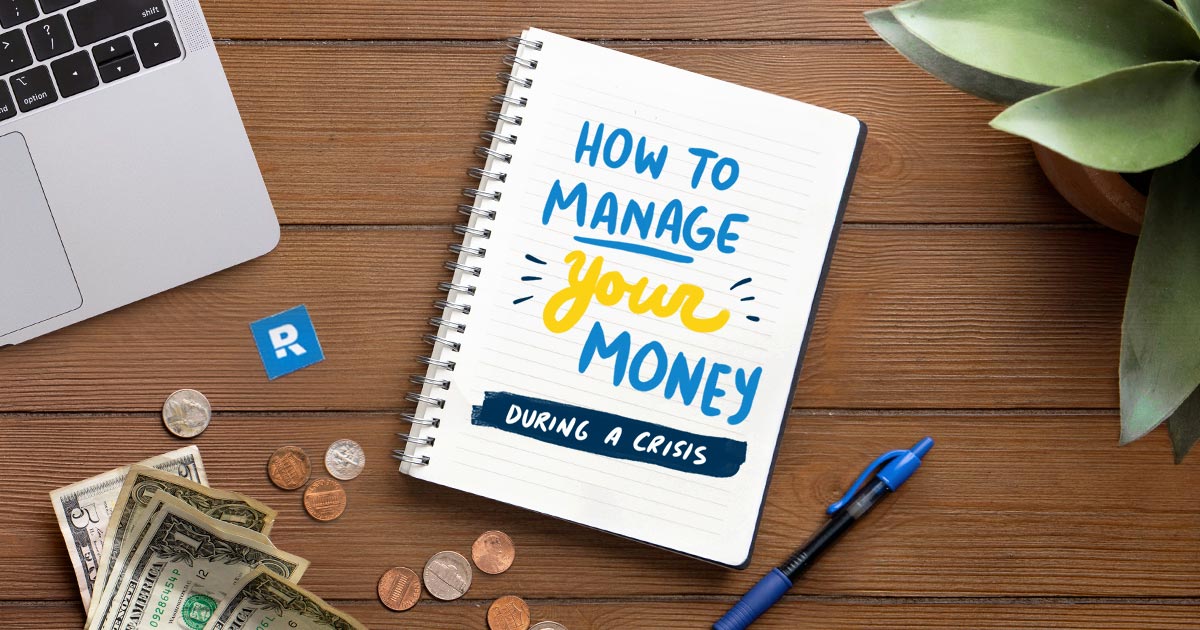Key Takeaways
- If your income is stable during a crisis, stay on track with the Baby Steps, avoid pausing your debt snowball, and don’t cash out your 401(k).
- If your income is unstable, pause your debt snowball, focus on covering the Four Walls, and avoid new debt (like payday loans or home equity lines of credit).
- Only file for unemployment if you’re unable to earn at least half your previous income, and keep job hunting even if you’re receiving benefits.
- Small business owners should explore local resources, but steer clear of Small Business Administration loans due to forgiveness difficulties.
Whether you’re going through medical issues, a job loss, a family emergency, or any other curve ball life throws your way, it can be hard to know how to financially get through it.
But don’t worry. We’re breaking down what you should and shouldn’t do with your money during a crisis.
What Should I Do if My Income Is Stable?
- DO keep right on working the Baby Steps like you have been.
- DO pay your bills on time. This isn’t a free pass to skip out.
- DO NOT pause your debt snowball!
- DO NOT cash out your 401(k). Early withdrawals mean penalties, taxes and lost compound growth—so the long-term cost far outweighs any short-term relief.
- DO NOT defer (aka delay) your student loan payments—keep attacking these with a vengeance.
- DO NOT stop paying your mortgage.
What Should I Do if I Was Laid Off/Furloughed or if My Income Is NOT Stable?
- DO pause your debt snowball! You need all that extra money on hand right now.
- DO make sure your Four Walls (food, utilities, shelter and transportation—in that order) are covered, then pile up cash as high as you can.
- DO make the minimum payments on your debt (if you can swing it).
- DO cut out all unnecessary spending from your budget (think need versus want).
- DO look for a part-time job wherever you can find one.
- DO NOT take out a payday loan! Run as far from these snakes as you can.
- DO NOT get a HELOC (home equity line of credit)—it will only dig a deeper hole.
- DO NOT stop paying your mortgage. Shelter is one of the Four Walls, so make sure it stays at the top of the list.
- DO NOT cash out your 401(k) unless you’re facing foreclosure or bankruptcy.
Should I File for Unemployment?
- DO check in with your state government to see if you qualify for unemployment benefits.
- DO keep looking for work (even if you’re getting unemployment).
- DO NOT file for unemployment if you can bring in at least 50% of your income by working another job (part time or full time).
What if I Run a Business or Church?
- DO explore local and state resources that support small businesses and nonprofits during economic downturns.
- DO NOT take out a Small Business Administration (SBA) loan! It’s too difficult to get them forgiven, so don’t mess with them.
There Is Hope
You don’t want to make bad decisions with your money just because of a crisis. So calm down, think things through, and be wise as you take each careful step. You’ve got this!
If you want to learn more about managing your money through both good and bad times, check out Financial Peace University (FPU). This course will show you how to save for emergencies and pay off debt—so you’re financially prepared for whatever comes your way. Even if you’re going through a crisis right now, FPU will give you the tried and true plan and the hope you need to keep going.
Or maybe you just need someone to answer your questions and walk you through your specific situation. If so, you can talk to one of our trusted financial coaches.
No matter where you start, your first step is creating a budget. That’s how you’ll take control of your income, track your spending, and start moving in the right direction. Budgeting isn’t just for tough times either—it’s a habit that leads to peace in the good times too.
And don’t worry, we’ve got an app to make budgeting simple. EveryDollar helps you plan, track and manage your money every single day. Sign up and get started today.
Next Steps
- Review the do’s and don’ts for your financial situation, and commit to following them.
- Create or update your budget using EveryDollar to stay on top of your money.
- Join Financial Peace University or talk with a Ramsey Preferred Coach to build a solid financial foundation—even in a crisis.



